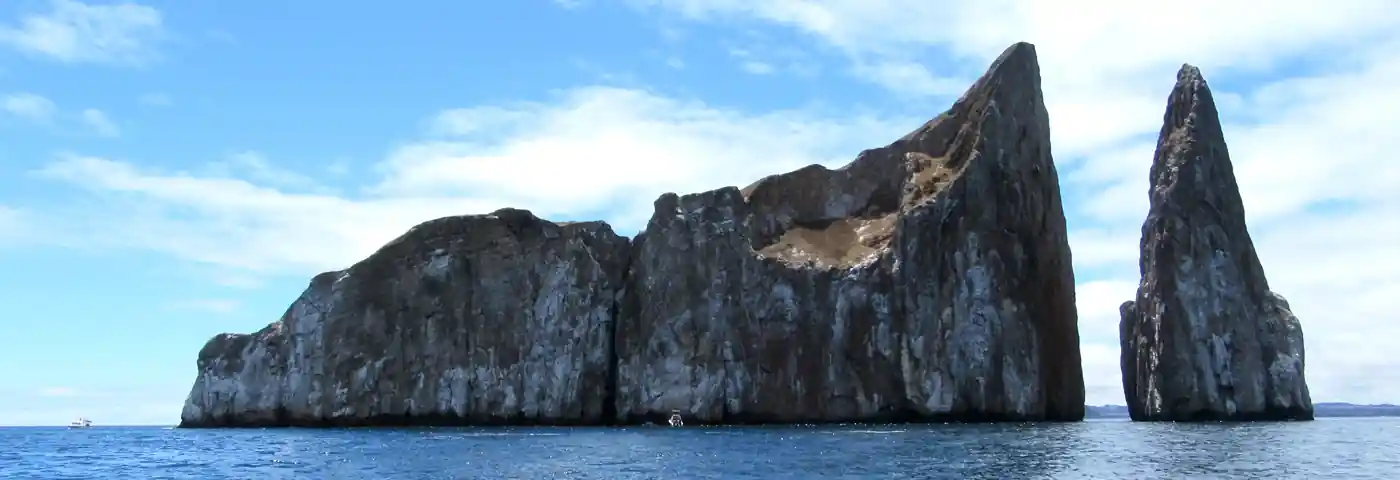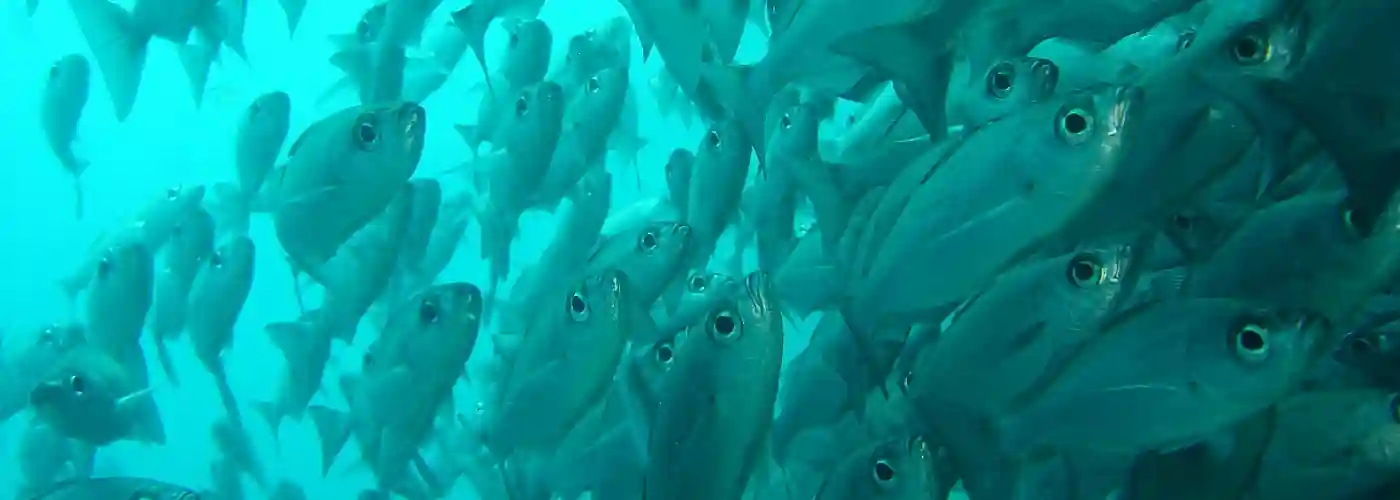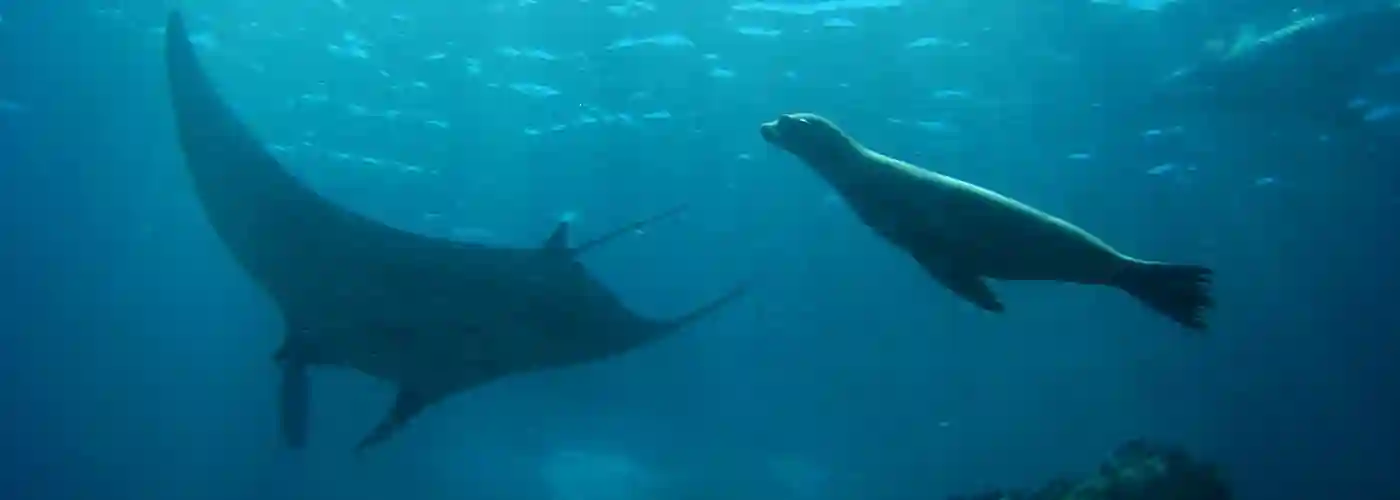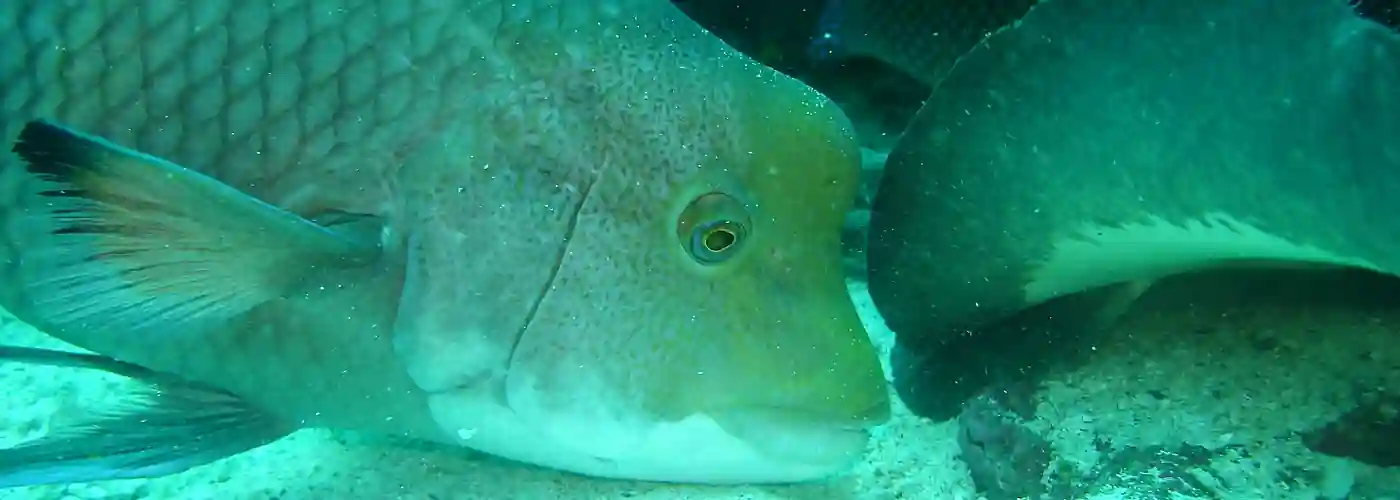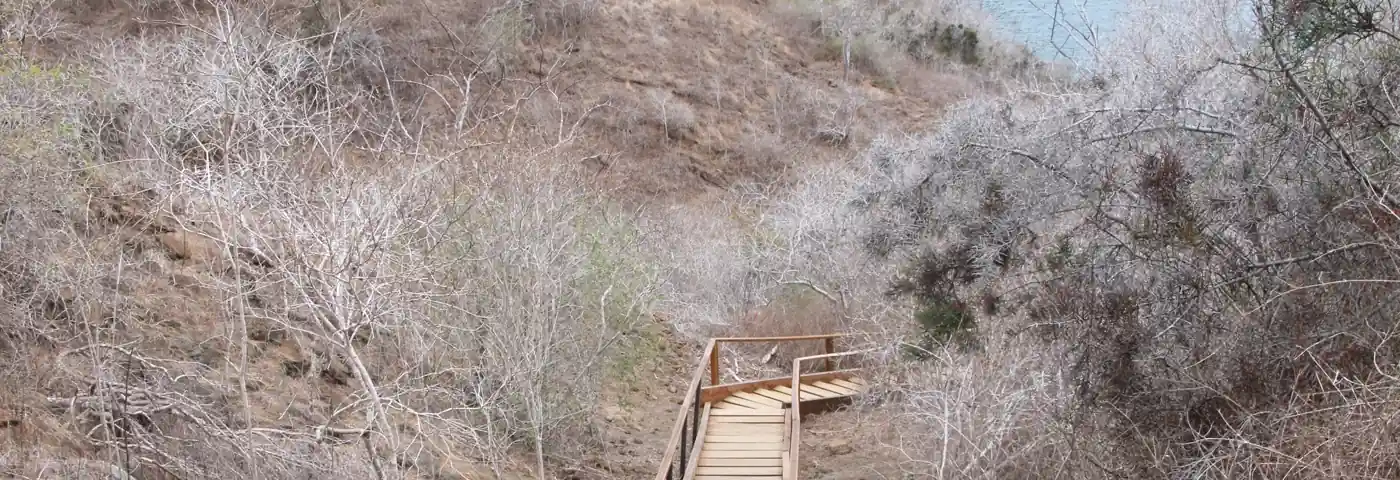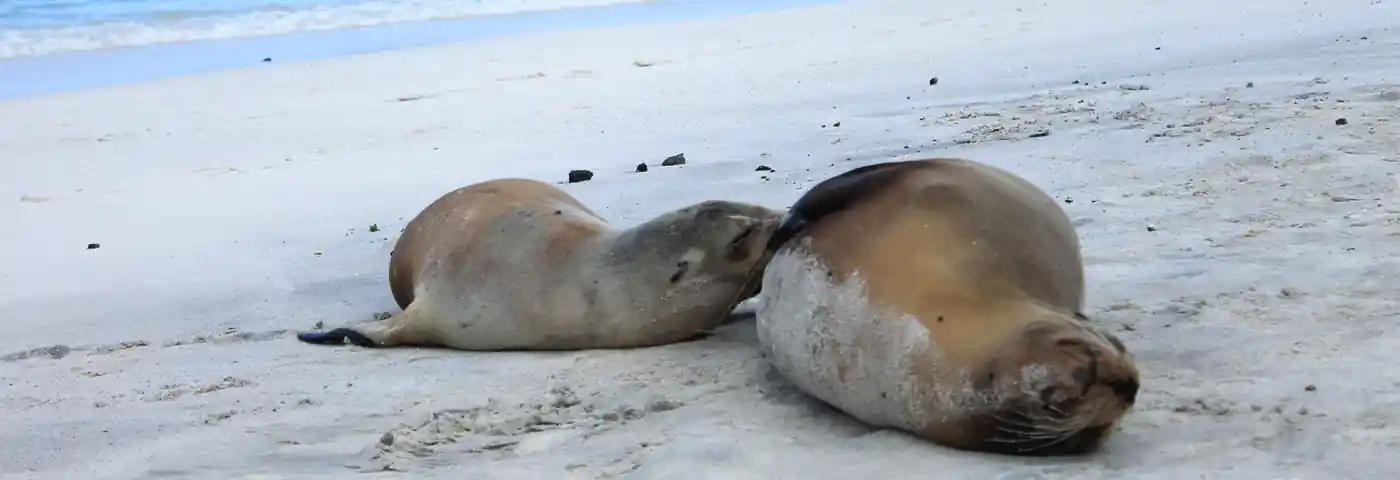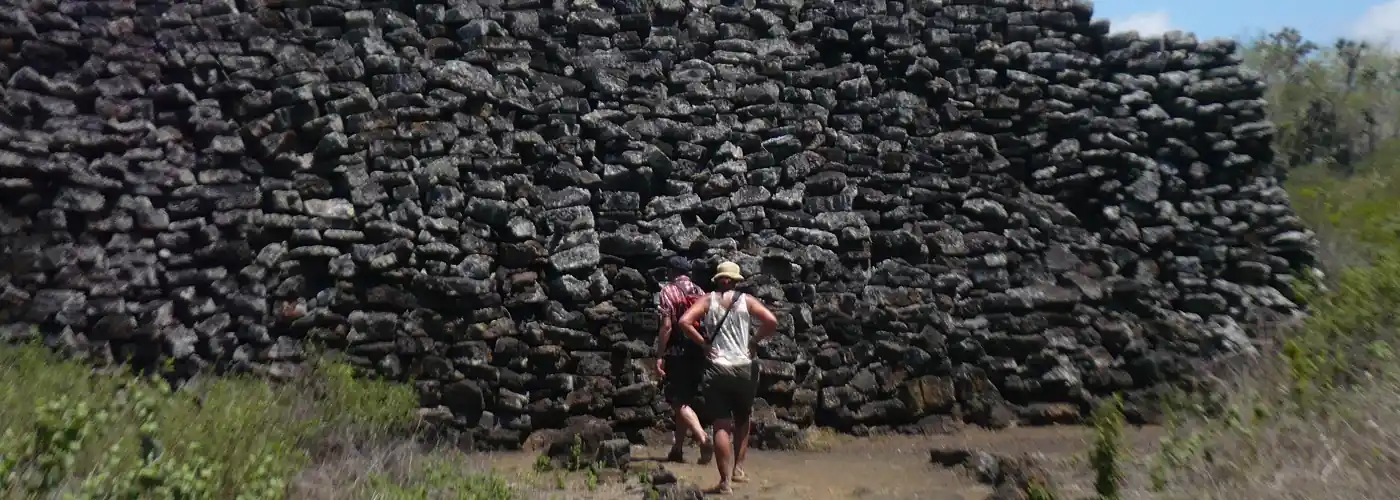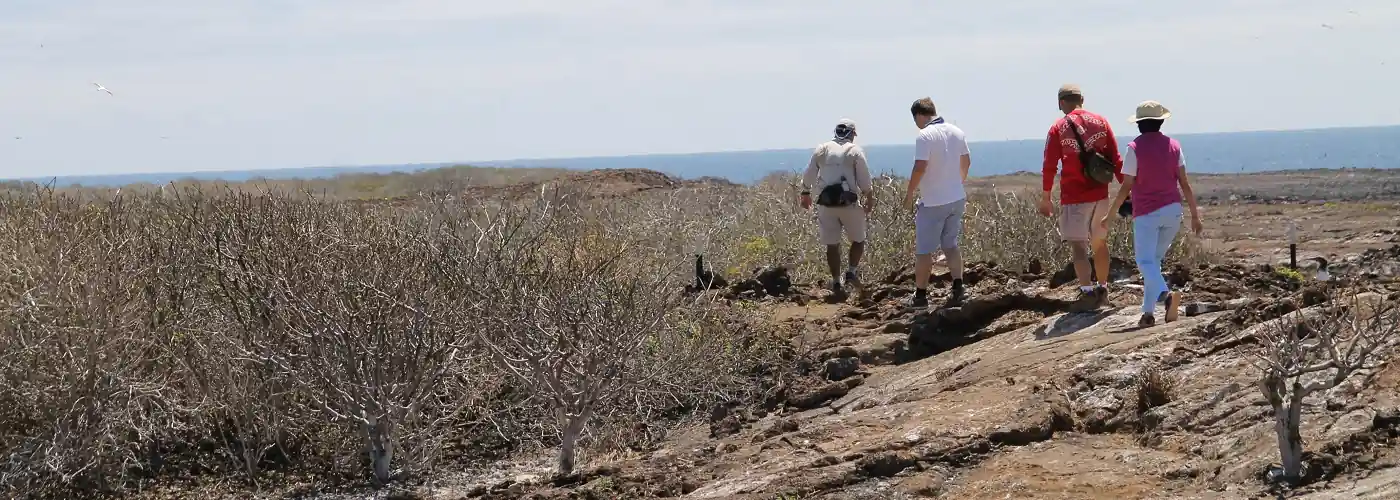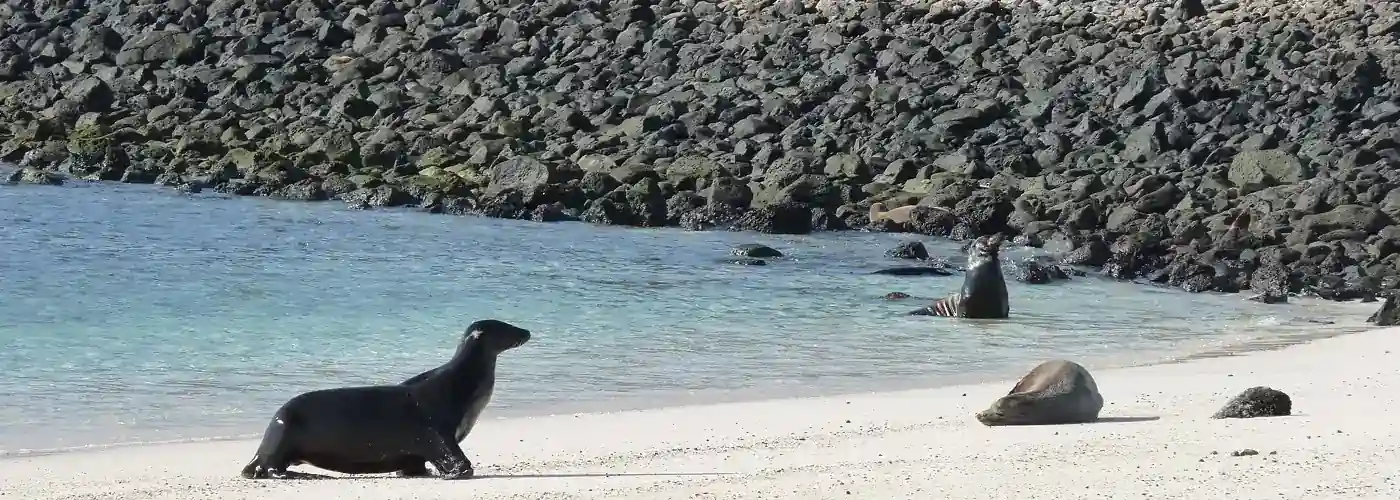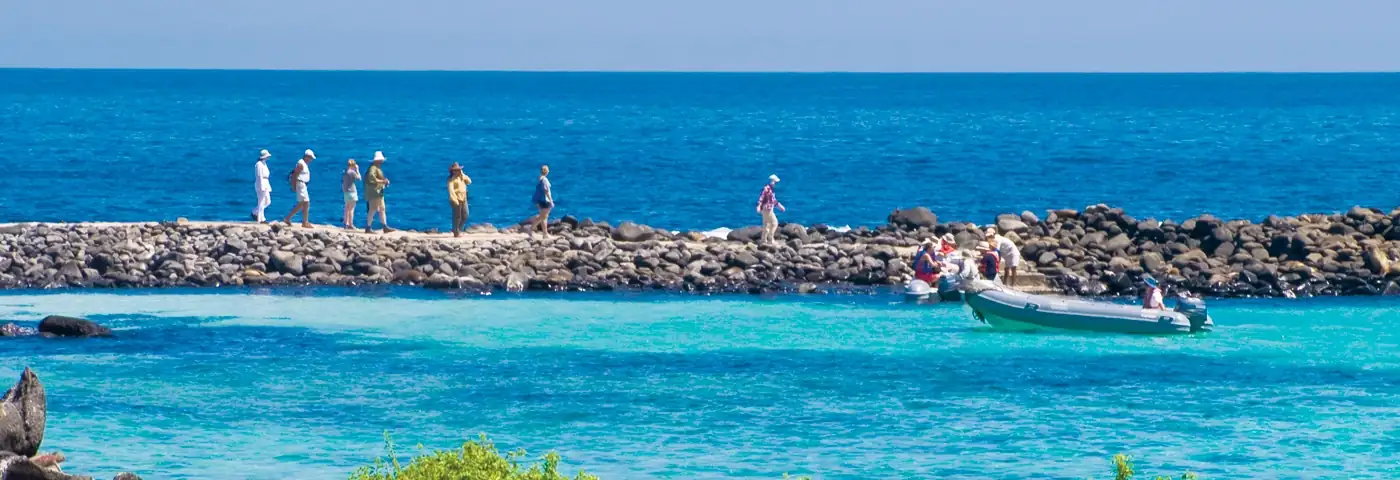8 days cruise yacht Aqua – A8 Diving
Route A8 (Tue - Tue): Dive Cruise Galapagos
- 8 days
- 1-16
Highlights of the tour
- Hammerhead sharks
- Galapagos Penguins
- Seahorses
- Galapagos giant tortoises in their natural habitat
Overview
Go live aboard in the Galápagos Archipelago with the yacht Aqua. The yacht has a diving platform and is equipped with all the necessary equipment for your underwater experience.
During the 8-day tour, you will anchor off various islands and can observe various interesting species underwater, such as sea turtles, white-tipped reef sharks and manta rays.
On board, you can relax and enjoy yourself after your diving excursions.
Itinerary
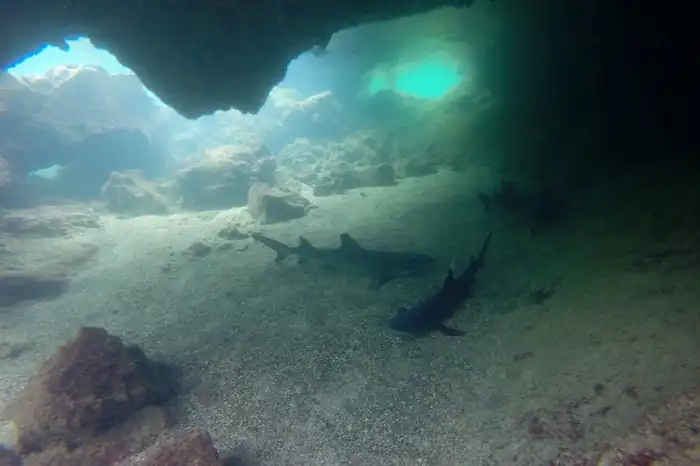
Afternoon – North East Baltra. This site is perfect to start your adventure with moderate currents. This dive site is suitable for adventurous divers who want to see fascinating lava formations and rock formations, as well as an incredible variety of marine life. At a depth of around 20m, you can see white-tipped reef sharks, pelagic fish, reef fish, rays and turtles. In addition, sea lions will be your companions as you enter the island and during safety stops. Occasionally, hammerhead sharks can be spotted swimming nearby.
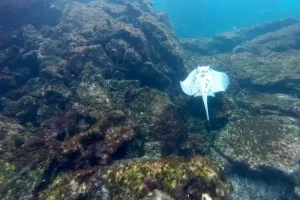
Afternoon – City of Mantas. A unique attraction near Cape Marshall’s is a place where giant manta rays are sighted so often that it has been named “Manta’s City”. They roam the plankton-rich waters to feed, so visibility can be very low. After returning aboard the Aqua, continue sailing towards Darwin, as the distance to be covered is considerable.
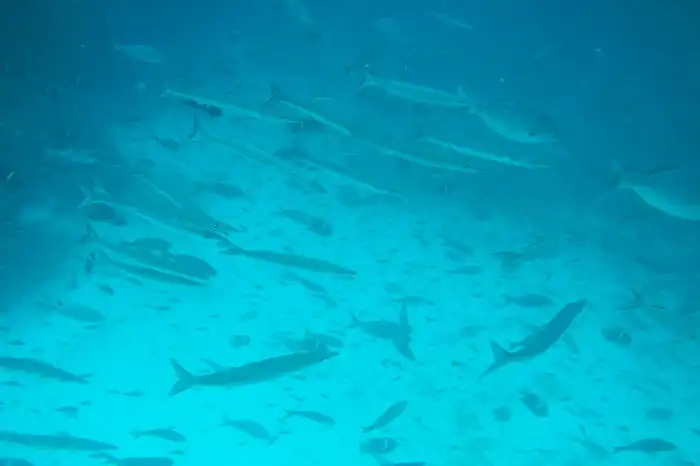
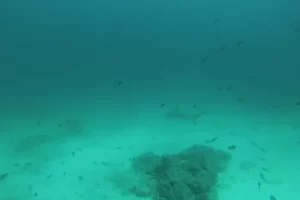
Afternoon – Wolf Island. Named after the German geologist Theodor Wolf, this extinct volcano has an altitude of 253 m above sea level and is located about 160 km northwest of Isabela Island. Land visits are not allowed, however, the bird life, such as: Red-footed Boobies and Vampire Finches, can be observed from the boat. The current at Wolf Island is between 1 and 3 knots, and you dive at a depth of about 12 to 27 meters. Wolf is one of those magical islands, with several dive sites to choose from. If you want to see sharks, you are at the right place. Here you can see schools of hammerhead sharks, many Galápagos sharks and occasionally whale sharks. Dolphins, large schools of tuna, spotted eagle rays, barracuda, sea lions and sea turtles are common here. The bottom is littered with hundreds of moray eels, many of which swim freely. Since the water is a few degrees warmer than in the central islands, you can look for many representatives of the underwater fauna of the Indo-Pacific. On a night dive here, you can also watch red-lipped batfish migrate along the seabed.
Morning – Afternoon: Wolf Island Once again you will visit Wolf Island for three more exciting dives.
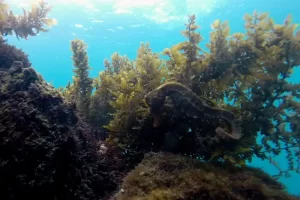
Afternoon – Cape Douglas. Cape Douglas is sure to provide you with amazing opportunities to observe a wide variety of marine life above and below the water! As you prepare for your dive, you may see Galápagos penguins, Galápagos flightless cormorants, and Galápagos marine iguanas – which swim and feed on the rocks below the surface-animals found only on the islands. Some marine life you may see are: Darwin’s sea bat, horn sharks, mola and possibly baleen whales!
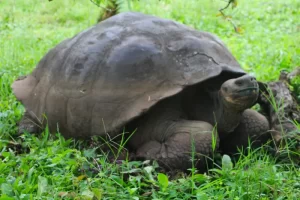
Afternoon – Highlands (Santa Cruz)After lunch, disembark the ship to visit the highlands of Santa Cruz on a private bus tour. Here you can admire different species of birds such as the small and large tree finches, ground finches, Galápagos flycatchers and cattle egrets (often standing on the backs of turtles). As you drive into the island’s protected area, you can see the contrasts of this diverse ecosystem. The path leads from the coast through the agricultural land and directly to the dense wet forests. Often you can see the Galápagos giant tortoises in the middle of the path or walking across the pastures and through the grass. This place is a paradise for ornithologists, because almost all birds either live on the island or pass through here.
Today you will depart to Baltra and will be transferred to the airport where you will say goodbye to the guide and the crew!
- Included services
- Accommodation on board in a cabin with private bathroom
- All meals, water, coffee and tea
- All dives with professional instructor
- Airport transfers in Galapagos (only guaranteed if the flight is booked together with the cruise)
- For the dives: 12-L tanks for enriched air, weights, harnesses and diving equipment (personal distress GPS, storm whistle, dive light and signal buoy).
- Towels for bathroom and beach
- Not included services
- International flight and Galapagos flight
- Entrance fee to Galapagos National Park (USD 200 per person, subject to change)
- Transit control card (USD 20 per person, subject to change)
- Airport transfers in Galapagos (if the flight is not booked together with the cruise)
- Full dive equipment rental on site (BCD buoyancy jacket, regulator, mask, fins, 7mm wetsuit, hood, gloves, booties, dive computer and flashlight) and nitrox (USD 150 per person)
- Soft and alcoholic drinks
- Tips
- Travel insurance covering trip interruption and diving accidents
- Personal expenses
Hints
Depending on the season and the resulting change in ocean currents, different species can be observed underwater: Large fish from July to December and warm water fish from January to June.
Required diving skills and experience and physical condition for diving in the Galapagos Islands: In general, diving in the Galapagos is challenging due to the extreme conditions – cold water, strong currents and limited visibility – and is mainly suitable for advanced divers. We strongly recommend that divers visiting the Galapagos have more than 50 logged dives. Divers should also have some experience with rough surface conditions, poor visibility, strong currents and cold water, requiring thicker wetsuits and hoods.
Multiple layers are optimal for diving in the Galapagos. A 7 mm wet suit with a light hood, booties and gloves is a good option, or a dry suit with a full 5 mm hood will keep most divers warm. To rent a wetsuit, we need your clothing size (S/M/L/XL) before you arrive in Galapagos. We rent 7 mm wetsuits.
Single travelers share a cabin with a person of the same sex, unless a single room is booked and the single supplement is paid (guaranteed single cabin). Single travelers who agree to share their cabin are exempt from the single supplement even if no other traveler joins them.
Single supplement: 50% (maximum 4 single cabins per trip)
Ask us for children or group discount.
Price not valid for Christmas and New Years´s Eve departures.
All prices are subject to change if local tax increases or other circumstances beyond our control occur.
The itinerary is subject to change at any time due to circumstances beyond our control.
In order to rent a wetsuit, we will need your clothing size (S/M/L/XL) before your arrival in Galapagos. Standard wetsuits with a thickness of 3 mm are rented.
Travel Insurance:
To protect your travel investment, we highly recommend the purchase of travel insurance. Travel insurance is intended to cover medical expenses, trip interruption and cancellation, theft and other losses incurred while traveling domestically or internationally.
Visa and Entry Requirements:
Ecuador requires a valid passport (with a minimum 6 months validity). Contact your local embassy or consulate for the most up-to-date visa requirements.
8 days cruise yacht Aqua – A8 Diving
Get in touch:

Dayana Arias Leon
- +593 (0)2 2194333
- hello@soleq.travel
Other interesting cruises
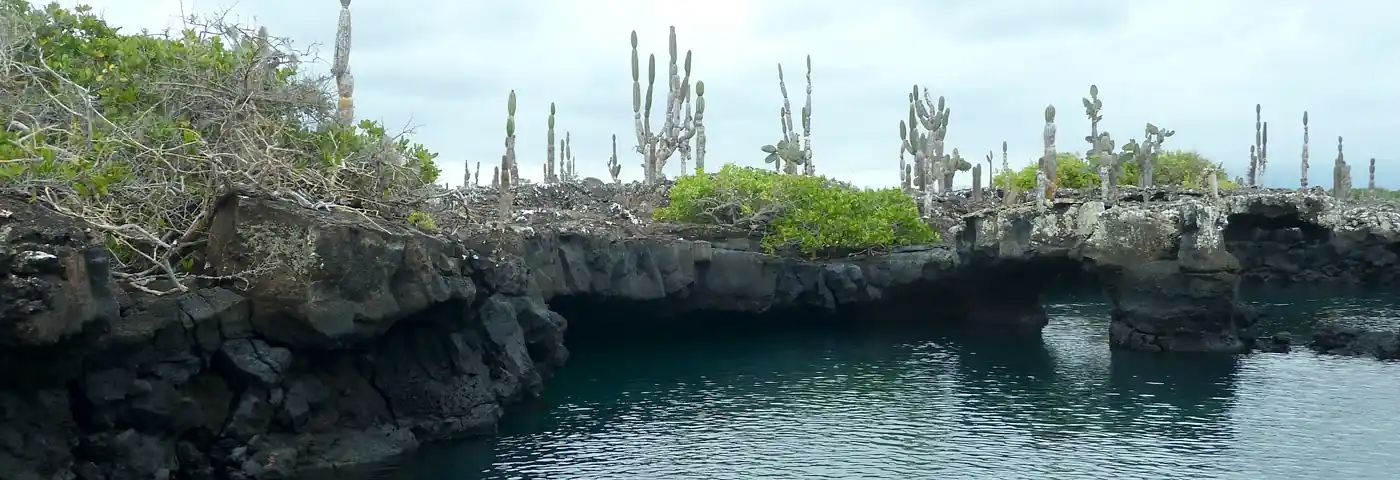
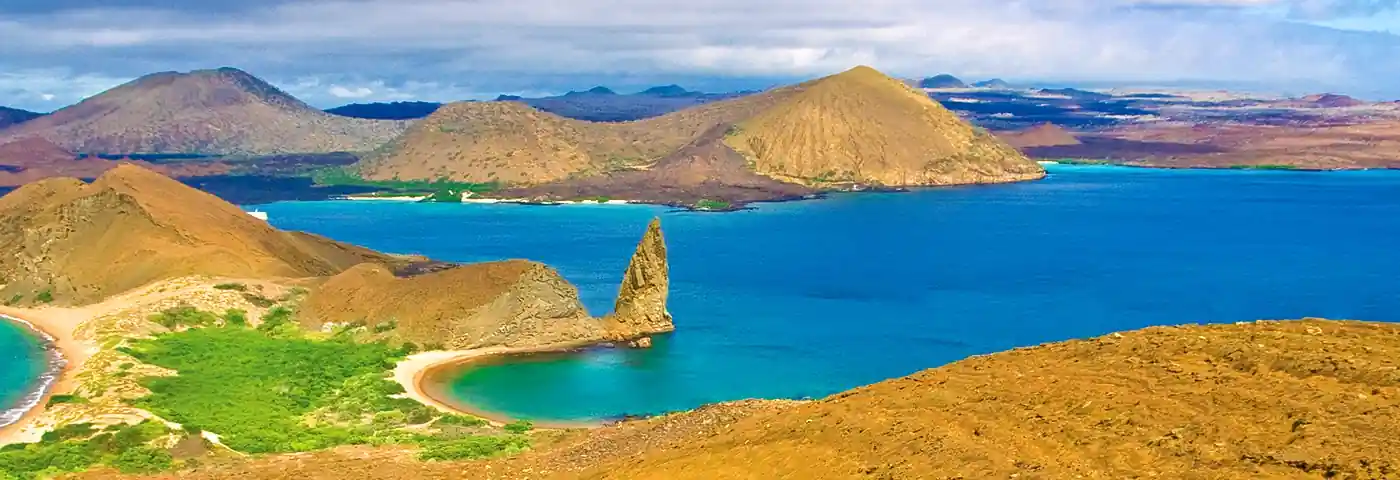
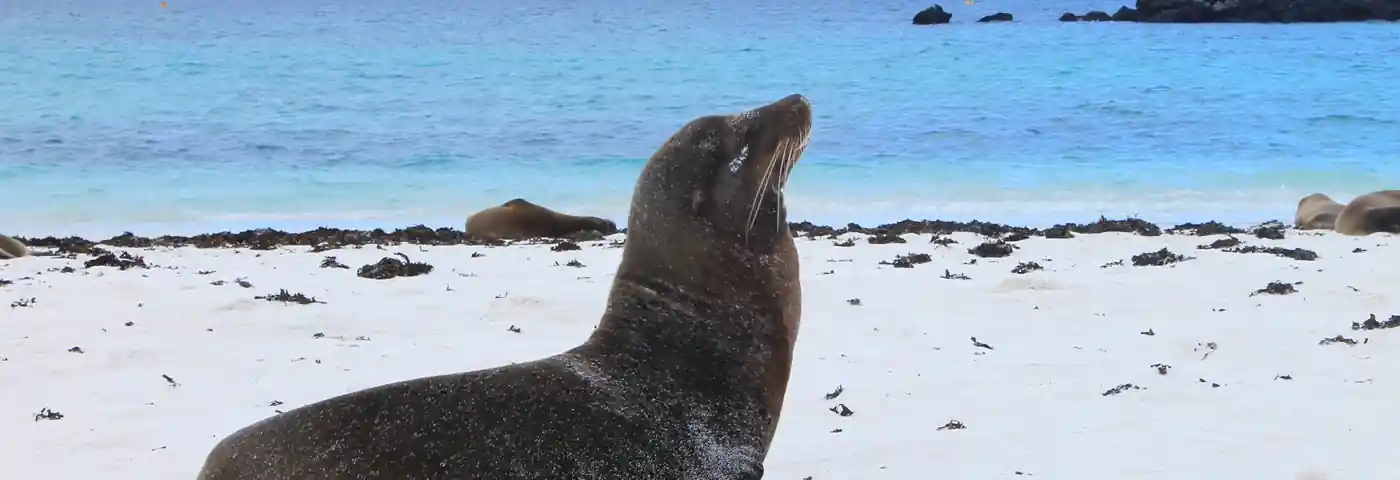
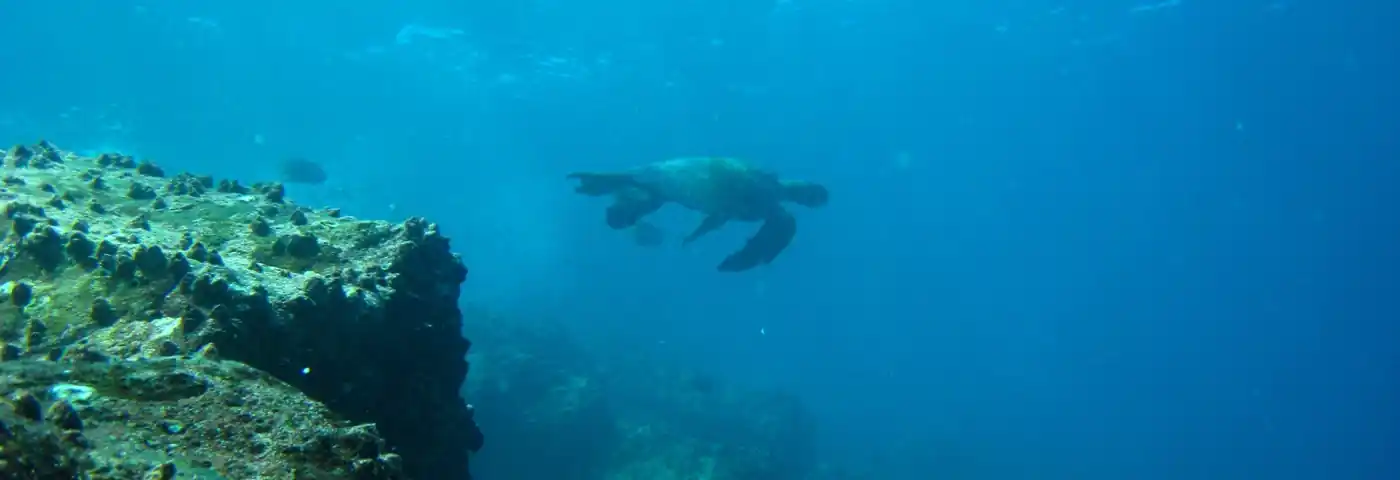

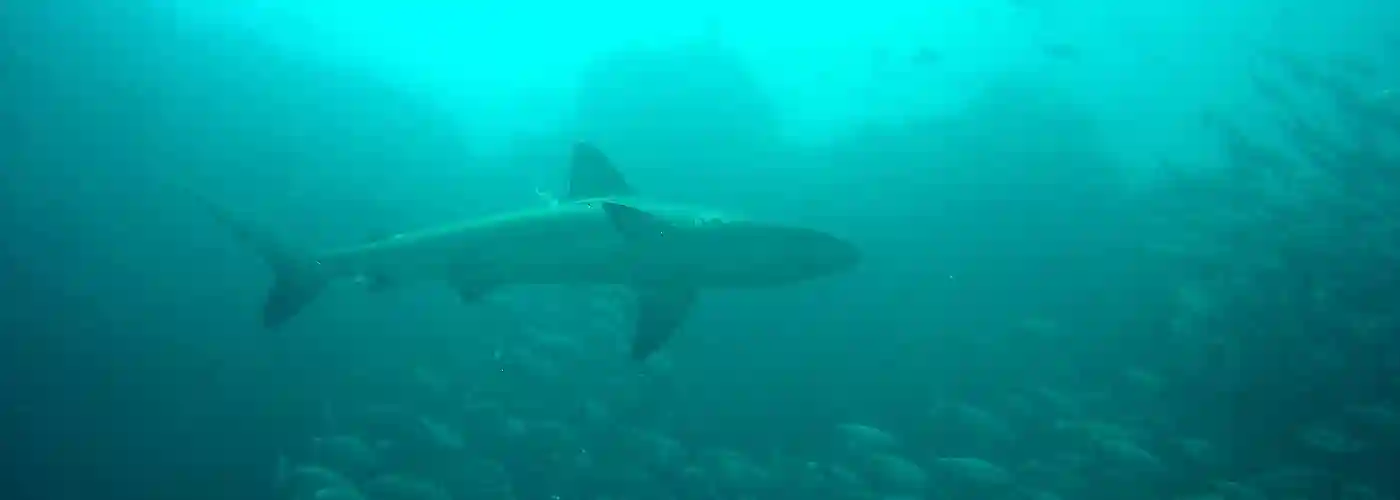
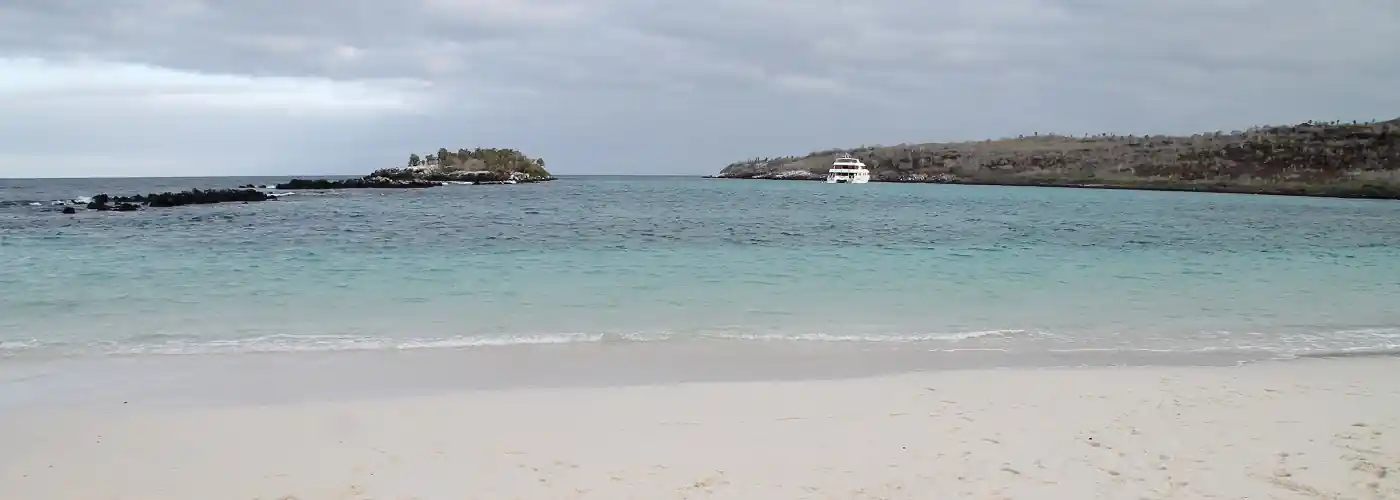
- 8 days
